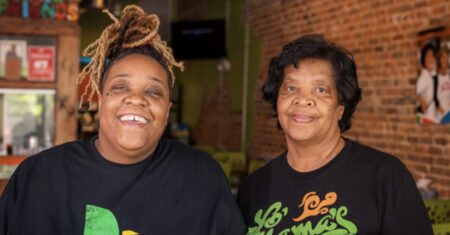When someone you care about is going through a difficult time, the thing you want to do the most is be there for them. The hard part is knowing the best way to help them, and much of that is based on circumstances. Typically, it first depends on who it might be that is going through a difficult time. Is it a parent? A family member? A close friend? It also depends on what exactly it is that they are struggling with. Did they receive a tough medical diagnosis? Are they caring for a family member who is ill? Is your loved one struggling with a loss of some sort, whether it be a person, job, or other?
Whatever the circumstance might be, people who are trying to support a loved one through a difficult time may have a hard time themselves navigating the situation. The first step is ensuring your loved one knows you are there for them.
“I think the first thing to do is to be present. That sound so easy, but we live in a world of distraction. When someone needs you to be there, it’s important to have good eye contact. You’re not looking at your phone. You’re engaged with what they are saying. You’re understanding what they are saying and you are interacting with it. You are asking open-ended questions to increase your understanding and show that you are really interested in what they are saying,” says Joseph Siegel, an OSF HealthCare licensed clinical social worker.
Siegel advises people who are supporting a loved one to really try and understand their concerns. Perhaps they just need to get their feelings out by opening up to someone in whom they can confide. In these situations, your loved one might not necessarily be looking for words of wisdom. They may just need an open ear and a shoulder to lean on.
“You’re there to listen. Sometimes what can get in the way of that is advice giving. This person is struggling, so our natural tendency is ask if they have tried something or another thing. Many times, a person just needs an attentive listener,” explains Siegel.
Additionally, Siegel recommends paying close attention to understand what your loved one might need. Often times, people who are going through something difficult may not necessarily know how to or want to ask for help directly. However, simple tasks such as doing the laundry, running an errand, bringing over dinner, or driving them to a doctor appointment can make the world of a difference.
“Try to put yourself in their shoes. Try to have empathy. But also, try to anticipate needs. Often this person is unable to really form a good understanding of what they might need in that moment. It can be something that’s super simple like rubbing their back, or more complex like taking their kids to school,” Siegel advises.
If something comes up in conversation with your loved one that you think you can help with, offer to do that. However, it is important to ask before doing, as Siegel says many people who are going through something hard still want their sense of independence and autonomy. But sometimes juggling everyday tasks and a life-changing event become daunting – in which case help would most likely be welcome.
In addition to listening to your loved one and helping with what you are able, Siegel says it is good to provide a sense of normalcy, as many people who are going through something difficult such as a scary diagnosis can begin to feel consumed by it.
“I think it’s important not to stay completely focused on or dwell on that issue. People have rich, complicated lives and when we start reducing their life to this one problem or this one issue, it can become a real drag on their emotional health. So even though you are helping with this one thing, don’t forget to include everything else about them,” says Siegel.
Provide some normalcy by talking about day-to-day things, sharing funny stories, and updating your loved one on your own life, as this can be a breath of fresh air for someone who feels consumed by a significant negative life event.
On the other hand, sometimes it might be hard for someone going through something hard to talk about anything else. Or perhaps your loved one is the opposite and does not want to talk about their circumstances at all. They may even avoid contact with friends and family. Regardless of the situation, Siegel typically recommends suggesting your loved one get in touch with a mental health professional as they navigate the life event.
“I would recommend it early on in any of these situations, but I would also bring it up in terms of your own experience with these helping professionals. I definitely would not put it in terms of ‘you should’ or ‘you could’ or ‘have you considered?’ Mention it as an option. Let them know it could be helpful, or share how your experience was and how you found it to be helpful for you,” Siegel advises.
It is also important to take care of yourself while you are supporting someone else. Self-care, however, is very situational in these circumstances – and it comes down to individual needs and values. If something like helping a loved one is embedded into your identity, Siegel says that it is important to honor that. If you are the kind of person who needs a break to recharge, do that. The most important thing is being true to yourself and not losing yourself when supporting someone else.
If you are supporting a loved one during a difficult time and need an outlet for yourself, make an appointment with a mental health professional or talk to your primary care provider to help connect you with one.
This article originally appeared on OSF Healthcare.







